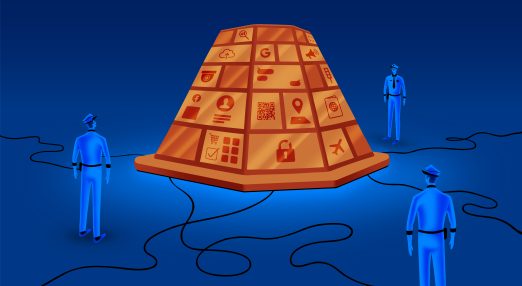Press mentions
Filter resources
-

EU plans allow Big Tech to exploit your medical records, without permission
The EHDS would make physicians and other medical professionals complicit in the forced commercialisation and monetisation of every aspect of your health without ever asking for your consent. It would destroy the Hippocratic oath of confidentiality by which every medical professional is supposed to be bound.
Read more
-

As AI Act vote nears, the EU needs to draw a red line on racist surveillance
The EU Artificial Intelligence Act, commonly known as the AI Act, is the first of its kind. Not only will it be a landmark as the first binding legislation on AI in the world – it is also one of the first tech-focused laws to meaningfully address how technologies perpetuate structural racism.
Read more
-

Retrospective facial recognition surveillance conceals human rights abuses in plain sight
Following the burglary of a French logistics company in 2019, facial recognition technology (FRT) was used on security camera footage of the incident in an attempt to identify the perpetrators. In this case, the FRT system listed two hundred people as potential suspects. From this list, the police singled out ‘Mr H’ and charged him with the theft, despite a lack of physical evidence to connect him to the crime. The judge decided to rely on this notoriously discriminatory technology, sentencing Mr H to 18 months in prison.
Read more
-

The EU’s home affairs chief wants to read your private messages
The CSA Regulation, proposed by European Commissioner Ylva Johansson, could undermine the trust we have in secure and confidential processes like sending work emails, communicating with our doctors, and even governments protecting intelligence.
Read more
-

EU Digital Services Act brings us closer to an inclusive, equitable internet
Strong enforcement of the DSA can bring human rights improvements, but real alternatives to the current dominant surveillance business model are still needed
Read more
-

The AI Act: EU’s chance to regulate harmful border technologies
The AI Act will be the first regional mechanism of its kind in the world, but it needs a serious update to meaningfully address the profileration of harmful technologies tested and deployed at Europe’s borders.
Read more
-

Framing the future of the internet
The European Parliament has just voted on the Digital Services Act, crucial for internet regulation.
Read more
-

Online surveillance thrives when fear takes over
European law-enforcement agencies have been pushing to end encryption and survey everyone’s online communications.
Read more
-

E-evidence regulation: Why it matters for medical confidentiality?
Access to health data by foreign authorities in the context of a criminal investigation – be it intentional or not – needs to be carefully regulated as it also impacts doctors’ legal and ethical duties.
Read more
-

Do no harm? How the case of Afghanistan sheds light on the dark practice of biometric intervention
In August 2021, as US military forces exited Afghanistan, the Taliban seized facial recognition systems, highlighting just how a failure to protect people’s privacy can tangibly threaten their physical safety and human rights. Far from being good tools which fell into the wrong hands, the very existence of these systems is part of broader structures of data extraction and exploitation spanning continents and centuries, with a history wrapped up in imperialism, colonialism and control.
Read more
-

Facebook deleting facial recognition: Five reasons to take it with a pinch of salt
Voluntary self-regulation from tech giants is superficial and no replacement for actual legislation
Read more
-

MEPs poised to vote blank cheque for Europol using AI tools
This week, MEPs recognised the dangers of certain uses of Artificial Intelligence (AI) in criminal justice. A strong majority rallied around the landmark AI in criminal matters report by the European Parliament's Civil Liberties, Justice and Home Affairs (LIBE) committee, which opposes AI that 'predicts' criminal behaviour and calls for a ban on biometric surveillance.
Read more
